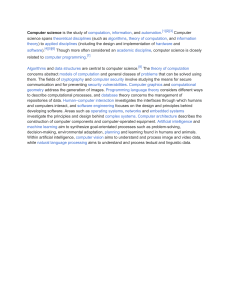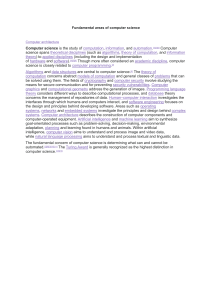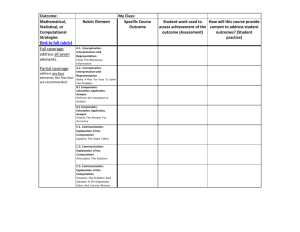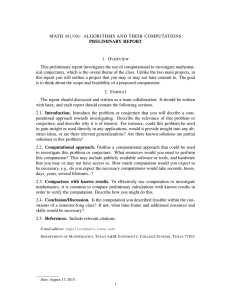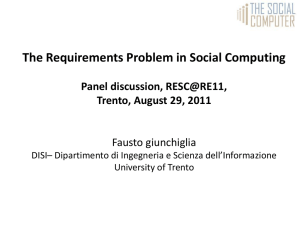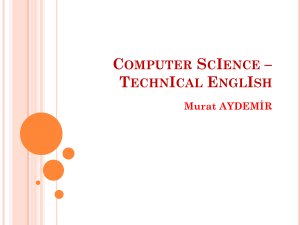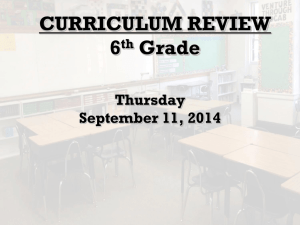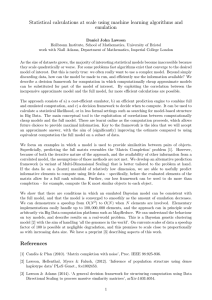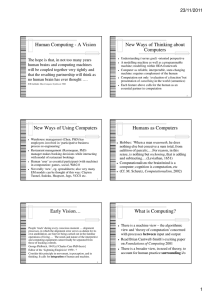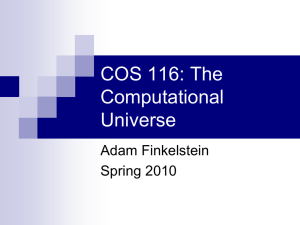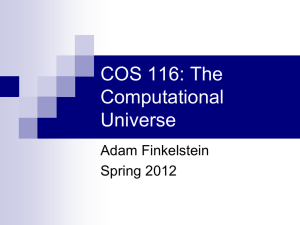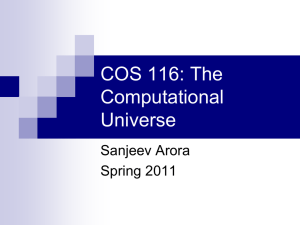Harnessing the Human in Knowledge Discovery: Visual Data Mining
advertisement
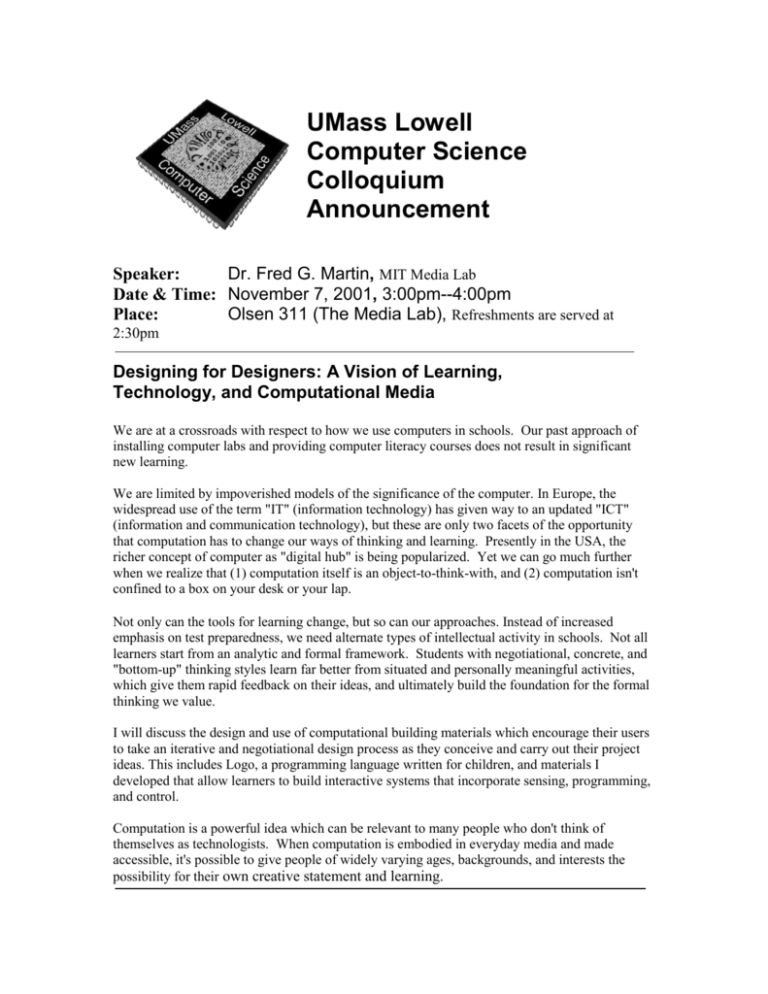
UMass Lowell Computer Science Colloquium Announcement Speaker: Dr. Fred G. Martin, MIT Media Lab Date & Time: November 7, 2001, 3:00pm--4:00pm Place: Olsen 311 (The Media Lab), Refreshments are served at 2:30pm Designing for Designers: A Vision of Learning, Technology, and Computational Media We are at a crossroads with respect to how we use computers in schools. Our past approach of installing computer labs and providing computer literacy courses does not result in significant new learning. We are limited by impoverished models of the significance of the computer. In Europe, the widespread use of the term "IT" (information technology) has given way to an updated "ICT" (information and communication technology), but these are only two facets of the opportunity that computation has to change our ways of thinking and learning. Presently in the USA, the richer concept of computer as "digital hub" is being popularized. Yet we can go much further when we realize that (1) computation itself is an object-to-think-with, and (2) computation isn't confined to a box on your desk or your lap. Not only can the tools for learning change, but so can our approaches. Instead of increased emphasis on test preparedness, we need alternate types of intellectual activity in schools. Not all learners start from an analytic and formal framework. Students with negotiational, concrete, and "bottom-up" thinking styles learn far better from situated and personally meaningful activities, which give them rapid feedback on their ideas, and ultimately build the foundation for the formal thinking we value. I will discuss the design and use of computational building materials which encourage their users to take an iterative and negotiational design process as they conceive and carry out their project ideas. This includes Logo, a programming language written for children, and materials I developed that allow learners to build interactive systems that incorporate sensing, programming, and control. Computation is a powerful idea which can be relevant to many people who don't think of themselves as technologists. When computation is embodied in everyday media and made accessible, it's possible to give people of widely varying ages, backgrounds, and interests the possibility for their own creative statement and learning. Colloquium Coordinator: Jie Wang, wang@cs.uml.edu , Website: http://www.cs.uml.edu/~wang/colloquia/
